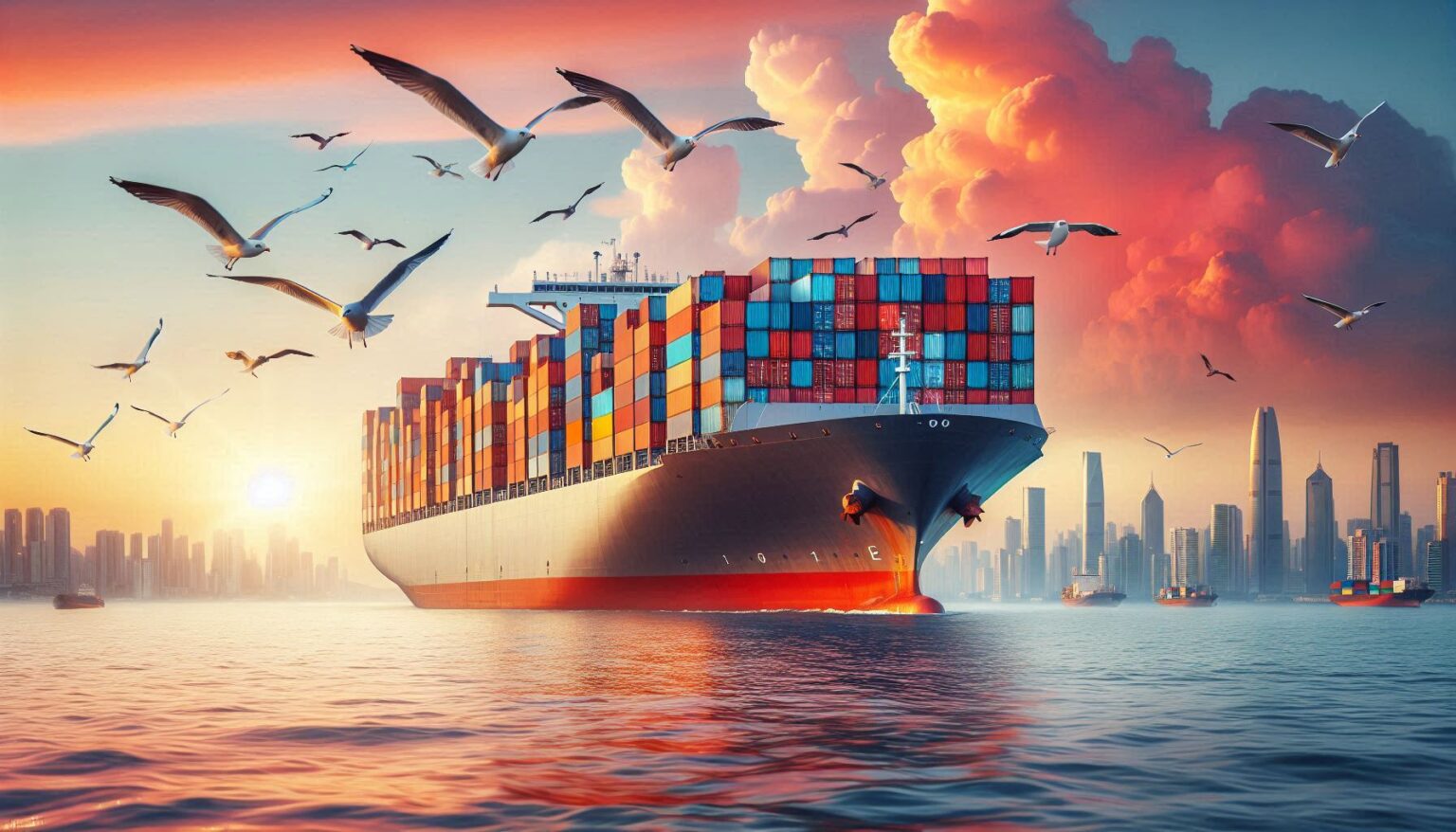The terms NVOCC or “Non-Vessel Operating Common Carrier” (NVOCC) and “Freight Forwarder” are often used interchangeably. However, these two roles serve different functions in the supply chain, and understanding their distinctions can help businesses and shippers make more informed decisions.
Efficient logistics helps businesses reduce costs by optimizing transportation, warehousing, and inventory management. This allows companies to offer competitive prices while maintaining profitability. Logistics is essential for international trade, enabling the movement of goods across borders. This supports economic growth by connecting markets and facilitating the exchange of goods and services.
What is an NVOCC?
A Non-Vessel Operating Common Carrier (NVOCC) acts as an intermediary between shippers and vessel operators. Despite not owning or operating any vessels, NVOCCs perform many functions of an ocean carrier. They buy space from vessel-operating common carriers (VOCCs) and resell it to shippers. NVOCCs issue their own bills of lading, assume carrier responsibilities, and can set their own tariffs.
Subscribe to the Ex-works24/7 newsletter
Key Functions of an NVOCC:
Issuing Bills of Lading: NVOCCs issue their own bills of lading, which are legal documents that serve as proof of the contract between the shipper and the carrier. This document is crucial for the international shipping process.
Consolidating Shipments: NVOCCs often consolidate cargo from multiple shippers into one container, which can help reduce shipping costs due to economies of scale.
Negotiating Rates: They have the ability to negotiate shipping rates with ocean carriers and can offer competitive rates to shippers by leveraging their relationships with these carriers.
Providing Documentation and Compliance: NVOCCs ensure that all necessary documentation, such as customs declarations and shipping permits, are correctly prepared and compliant with regulations.
What is a Freight Forwarder?
Freight Forwarders are logistics experts who coordinate the transportation of goods across various modes of transport, including air, sea, and land. They act as shippers’ agents, arranging cargo movement from origin to destination. Freight Forwarders handle documentation, customs clearance, and other logistical tasks but do not take on the carrier’s responsibilities.
Key Functions of a Freight Forwarder
Arranging Transportation: Freight forwarders coordinate and arrange the movement of goods using various modes of transport, including ocean, air, rail, and road.
Handling Documentation: They prepare and manage all necessary shipping documents, including bills of lading (if they act as agents for carriers), customs paperwork, and insurance certificates.
Customs Clearance: Freight forwarders ensure that shipments clear customs efficiently by handling all the paperwork and compliance requirements.
Warehousing and Distribution: Many freight forwarders offer additional services like warehousing and distribution, providing a more integrated logistics solution.
The Key Differences
Operational Scope:
- NVOCC: Focuses primarily on ocean freight. They buy space on ships and sell it to shippers, issuing their own bills of lading.
- Freight Forwarder: Handles multiple modes of transport (air, sea, land) and acts as an agent for shippers, arranging the entire logistics process12.
Legal Responsibilities:
- NVOCC: Takes on a carrier’s legal responsibilities, including cargo liability.
- Freight Forwarder: Acts as an intermediary without assuming carrier liability12.
Documentation:
- NVOCC: Issues its house bill of lading.
- Freight Forwarder: Prepares and manages shipping documents but does not issue its bill of lading12.
Licensing:
When to Choose an NVOCC or Forwarder?
- Choose an NVOCC if you need a carrier that can provide ocean freight services with the ability to issue bills of lading and assume carrier responsibilities.
- Choose a Freight Forwarder if you require comprehensive logistics services across multiple modes of transport, including documentation and customs clearance.
Conclusion: Both Non-Vessel Operating Common Carriers (NVOCCs) and Freight Forwarders play crucial roles in the logistics and shipping industry. NVOCCs are specialized in ocean freight and offer benefits like rate negotiation and shipment consolidation. Freight Forwarders provide a comprehensive range of services, managing the entire logistics process and offering expertise across multiple modes of transportation.
Choosing between an NVOCC and a Freight Forwarder depends on your specific shipping needs. If your focus is primarily on ocean freight and you need to consolidate shipments, an NVOCC might be the right choice. If you require a more integrated solution that includes various transport modes and additional services, a Freight Forwarder could be more suitable.
Understanding these differences will help you navigate the complex world of international shipping more effectively, ensuring your goods reach their destination efficiently and cost-effectively.
Frequently
Asked Questions
An NVOCC is a company that provides ocean transportation services without owning the vessels. They issue their own bills of lading, take responsibility for cargo, and can consolidate shipments for customers, acting as a carrier while contracting with shipping lines.
A freight forwarder is a logistics service provider that arranges the transportation of goods on behalf of shippers. They coordinate various aspects of the shipping process, including booking cargo space, preparing documentation, and managing customs clearance, but do not issue their own bills of lading.
NVOCCs assume liability for the cargo as they operate as carriers. They are responsible for the shipment from point of origin to destination. In contrast, freight forwarders do not assume the same level of liability; they facilitate transportation and may have limited liability based on their contracts and insurance.
NVOCCs often have set freight rates and can offer competitive pricing by consolidating shipments. Freight forwarders provide quotes based on services rendered, which can vary depending on factors like the shipping route, mode of transport, and additional services required
Yes, a company can operate as both an NVOCC and a freight forwarder. However, they must comply with the regulatory requirements for each role. Many logistics companies offer a full range of services, allowing them to act as either, depending on the needs of their clients.




